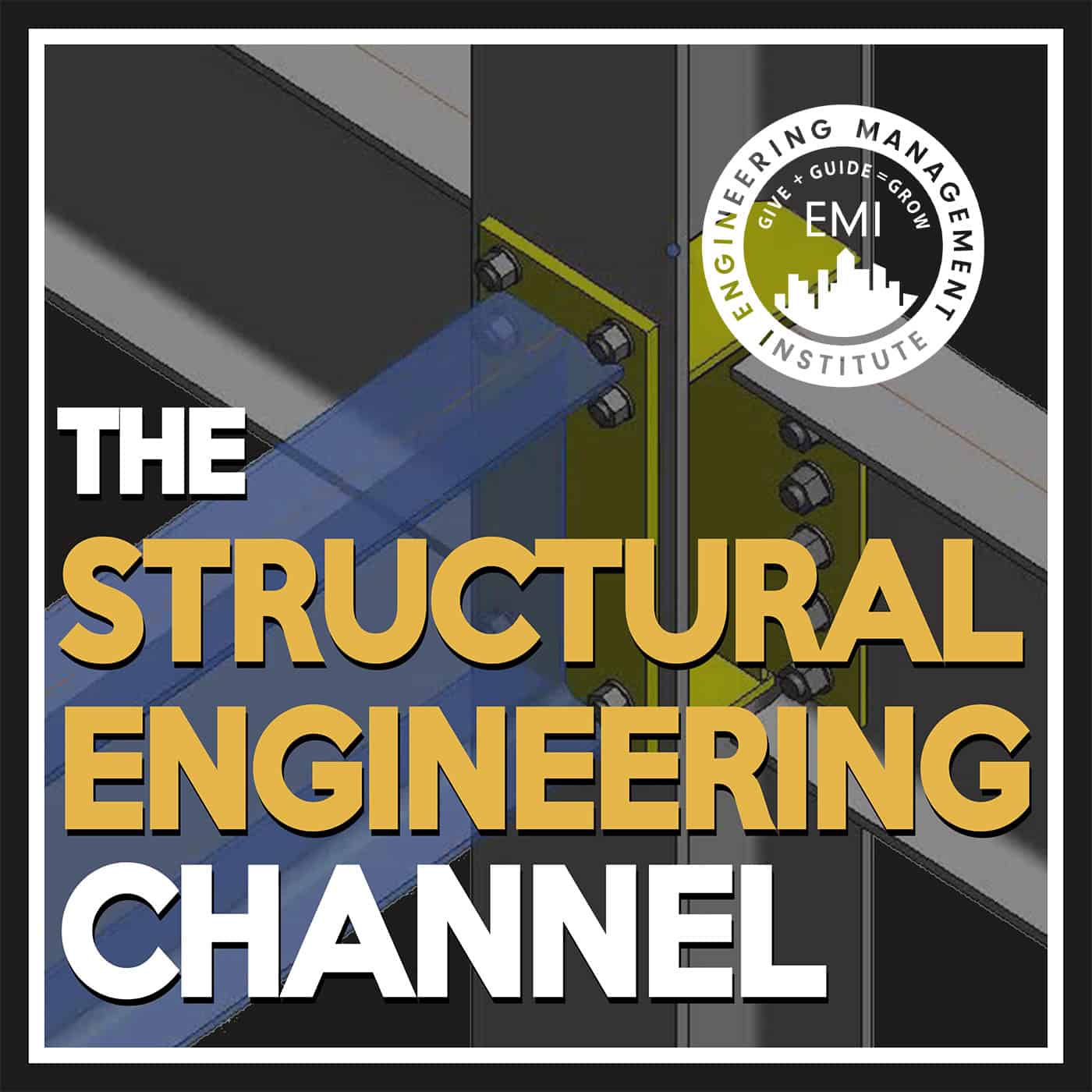TSEC 108: Structural Engineering Career Paths: Design vs Manufacturing
Description
In this episode, Rachel and Mathew delve into two distinct structural engineering career paths. Rachel sheds light on the benefits of pursuing a career with a manufacturing company, while Mathew shares valuable insights for professionals aiming to advance their careers within a design firm. They thoroughly explore the advantages and disadvantages, growth potential, and exceptional opportunities that each path presents.
***The video version of this episode can be viewed here.***
Engineering Quotes:
Here Are Some of the Key Difference Between Design and Manufacturing Career Paths:
Manufacturing:
Working in the manufacturing industry allows engineers to specialize in specific components, gaining in-depth expertise, while design firms offer a broader collaborative experience with architects, civil engineers, and internal teams. Simpson Strong-Tie's unique position exposes engineers to new insights, such as the intricate process of building dyes, and enables continued collaboration with architects, builders, and engineers as valued customers.
The process of developing safe and reliable building components like connectors and hangers involves rigorous testing, consideration of diverse building practices, and feedback from customers, with structural engineers playing a crucial role in ensuring compliance and refinement before launching the final product.
Being part of a large company offers engineers unique opportunities, including access to state-of-the-art testing facilities and involvement in research and development processes that encompass not only structural engineering but also business aspects, providing a well-rounded and enriching career experience.
College students often discover a passion for alternative structural engineering career paths beyond design firms, as companies like Simpson Strong-Tie offer diverse opportunities for customer interactions, fieldwork, and roles in marketing and product management, inspiring them to explore unconventional engineering career options.
Large manufacturing companies offer engineers diverse career growth opportunities, encouraging them to explore different paths beyond their initial expectations and cultivating a sense of possibility and professional development within the organization.
Customer-facing engineers work in a fast-paced environment with quick turnarounds for inquiries and field projects, while research and development engineers engage in longer-term projects with intricate details and a different pace, resulting in varied workflows depending on the role.
For aspiring engineers interested in the manufacturing industry, find a company that offers valuable resources such as internships, scholarships, facility tours, and knowledgeable staff who are eager to answer questions and provide insights, providing an opportunity to explore and determine if it aligns with their career aspirations.
Design:
To advance in the private design industry, engineers must prioritize technical proficiency, including a deep understanding of codes and design principles while maintaining accuracy, efficiency, and effective communication to gain the trust and support of managers and contribute to their team's success.
Emphasizing technical proficiency is important, followed by expressing interest in management roles to gain relevant experience through gradually handling small projects, eventually leading to the opportunity of becoming a project manager.
Open communication and mentorship support engineers seeking management roles, guiding them through small projects and addressing skill gaps in areas like communication and client interaction. It is also important to recognize and accommodate diverse career aspirations, providing growth opportunities that align with individual goals and contribute to the overall m...
More Episodes
In this episode, we talk with Ryan Jeansonne, P.E., civil structural engineer at Titan Delta, who shares powerful insights on mentorship and continuous learning in engineering, inspiring both new and seasoned professionals to take bold, impactful steps in their careers.
***The video version of...
Published 11/14/24
Published 11/14/24
In this episode, we speak with Farshad Mirshafiei, Ph.D., P.Eng., CEO and co-founder of Sensequake, about how advanced technologies are transforming structural assessments and redefining safety and infrastructure resilience in buildings and critical systems.
***The video version of this...
Published 10/31/24


